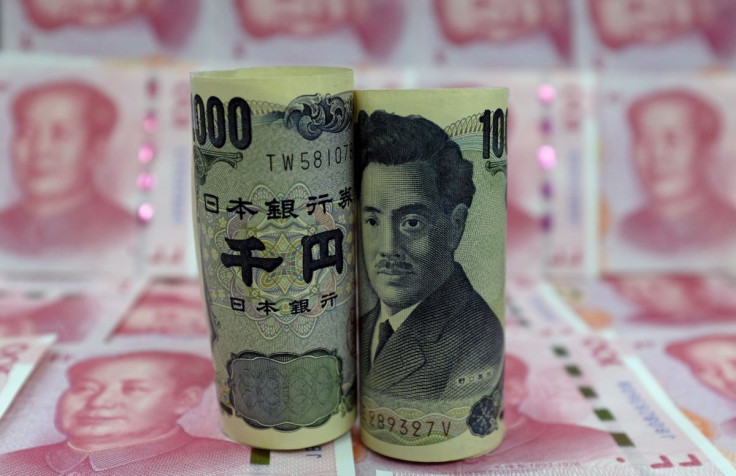Dollar Stands Tall As Fed Eyes Fast Hikes

The dollar rose broadly on Friday as higher U.S. yields hoisted it towards a seventh consecutive weekly gain on the yen and to multi-week highs against the Australian and New Zealand dollars.
A bounce in the euro has also unwound amid nervousness ahead of Sunday's presidential run-off vote in France, while the greenback is on track for its best week against the yuan in more than two years as China's yield premium over the U.S. has vanished.
The euro last bought $1.0844 and is not far above a two-year low. The Australian dollar fell 0.5% to a five-week low of $0.7331 and the New Zealand dollar 0.6% to a two-month low of $0.6688. [AUD/]
Federal Reserve Chairman Jerome Powell said on Thursday a 50-basis-point hike was on the table at its next meeting in May.
China, by contrast, is easing to support an economy hurt by softening demand abroad and strict lockdowns at home, while Japan is sticking with ultra-easy policies that have dragged the yen to a two-decade low of 129.43 per dollar this week.
The yen steadied at 128.20 in Asia after Japanese broadcaster TBS reported that Finance Minister Shunichi Suzuki discussed the idea of coordinated currency intervention with his U.S. counterpart Janet Yellen. It is down 1.4% for the week.
The yuan hit a seven-month low of 6.4779 in onshore trade and briefly crossed the 6.5 mark offshore as extended COVID-19 lockdowns sharply curb economic activity. [CNY/]
"Things have flipped on their head a little bit," said Steven Dooley, a currency strategist at cross-border payments firm Convera in Melbourne, as China is now lagging rather than leading the global pandemic response.
"The western world is back to normal, services are lot more in focus and the export growth we're used to seeing over the last two years out of China isn't going to be the same - so the influences (supporting the yuan) aren't really there anymore."
Weaker-than-expected central-bank fixings of the managed currency's trading band have also been interpreted as tacit official approval of the yuan's drop. For the week it is down 1.5%, its sharpest weekly fall since August 2019.
Global purchasing managers' index figures are due later on Friday and analysts said they could give further support to the greenback if they showed a global slowdown - especially since recent data have flattered the U.S. recovery.
Sterling hovered at $1.3028. [GBP/]
The U.S. dollar index held above 100 at 100.53 and the dollar was also within a whisker of Thursday's near-two-year high on the Swiss franc.
========================================================
Currency bid prices at 0544 GMT
Description RIC Last U.S. Close Pct Change YTD Pct High Bid Low Bid
Previous Change
Session
Euro/Dollar
$1.0845 $1.0831 +0.15% -4.58% +1.0851 +1.0831
Dollar/Yen
128.1350 128.2700 -0.06% +11.46% +128.6800 +127.9700
Euro/Yen
138.95 139.06 -0.08% +6.62% +139.4800 +138.8100
Dollar/Swiss
0.9534 0.9533 +0.01% +4.52% +0.9547 +0.9531
Sterling/Dollar
1.3027 1.3028 +0.01% -3.66% +1.3035 +1.3009
Dollar/Canadian
1.2596 1.2584 +0.13% -0.34% +1.2607 +1.2569
Aussie/Dollar
0.7338 0.7371 -0.43% +0.96% +0.7377 +0.7331
NZ
Dollar/Dollar 0.6692 0.6734 -0.64% -2.24% +0.6736 +0.6688
All spots
Tokyo spots
Europe spots
Volatilities
Tokyo Forex market info from BOJ
© Copyright Thomson Reuters 2024. All rights reserved.




















